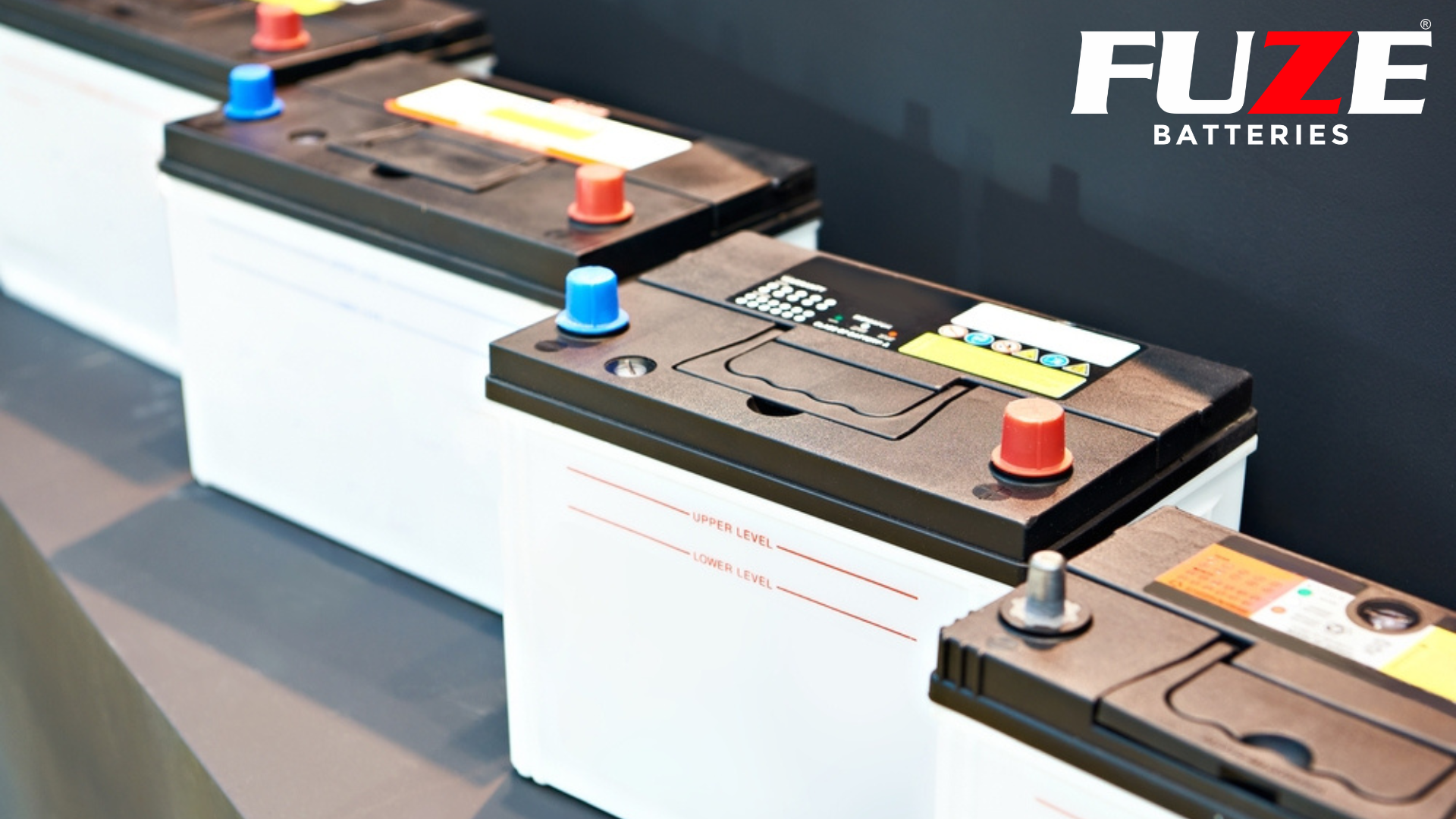They might sit quietly under your car hood or in the corner of your solar setup, but lead acid batteries are anything but dull. Inside these black boxes is a controlled storm of chemical reactions, designed to do one thing very well—store and deliver power, instantly and reliably.
But what exactly is going on inside them? Why are they still the top choice for so many applications? And what makes lead acid battery manufacturers in Kerala like Fuze so invested in this decades-old technology? Let’s crack one open (metaphorically) and take a closer look.
⚙️ A Look Inside: More Than Just Plates and Liquid
At first glance, a lead acid battery may seem simple: metal plates submerged in liquid inside a sealed container. But this setup is carefully engineered.
Inside, you’ll find:
- Lead dioxide (PbO₂) on the positive plate
- Spongy lead (Pb) on the negative plate
- A sulfuric acid (H₂SO₄) solution acting as the electrolyte
When the battery discharges—say, when you’re starting your car—a chemical reaction begins. The sulfuric acid reacts with the lead and lead dioxide, creating lead sulfate (PbSO₄) on both plates and releasing electrical energy in the process. When the battery is charged again, the reaction is reversed.
This back-and-forth dance of ions is what powers everything from vehicles to UPS systems and solar backups. It’s silent, but inside, it’s a high-energy chemical storm.
⚡ Why This Chemistry Still Wins
With lithium-ion batteries grabbing headlines, it’s easy to forget how relevant lead acid still is. But here’s the thing: lead acid batteries are extremely reliable, cost-effective, and recyclable. That makes them perfect for many situations where safety, budget, and long-term support matter.
That’s why companies like Fuze, one of the trusted lead acid battery manufacturers in Kerala, continue to innovate within this space—offering batteries designed for Indian weather, power fluctuations, and daily demands.
🛠️ Built for Tough Conditions
Lead acid batteries are famously durable. They can handle:
- High temperatures without performance drops
- Heavy discharge cycles, especially in inverter and solar systems
- Low maintenance needs, especially in sealed models (VRLA)
In regions like Kerala, where humidity and heat are constant companions, this toughness matters. Fuze batteries are designed to work efficiently in these exact environments—ensuring backup power is always ready when needed most.
🔁 99% Recyclable: The Eco Advantage
One of the least-talked-about benefits of lead acid batteries is their recyclability. Unlike many modern battery types, lead acid units can be recycled up to 99%—making them one of the most environmentally responsible energy storage options.
This sustainability factor has contributed to the continued popularity of the technology among both consumers and industry professionals. And it’s why lead acid battery manufacturers in Kerala are increasingly investing in eco-friendly production and recycling chains.
🔋 Fuze: Powering Kerala with Reliable Energy
At Fuze, we know that performance is non-negotiable. Whether you’re powering an inverter, running a solar setup, or ensuring a vehicle starts on the first try, you need a battery that delivers. As one of the emerging lead acid battery manufacturers in Kerala, our focus is on quality, consistency, and customer satisfaction.
We combine proven chemistry with modern manufacturing to build batteries that stand the test of time—and the test of Kerala’s climate.
💡 The Storm That Keeps Things Running
So the next time you see a lead acid battery, don’t be fooled by its quiet exterior. Inside is a well-orchestrated chemical storm—one that’s been refined over more than a century, and still powers much of our modern world.And with manufacturers like Fuze leading the way in Kerala, this old powerhouse is far from obsolete. In fact, it might just be getting better with age.

